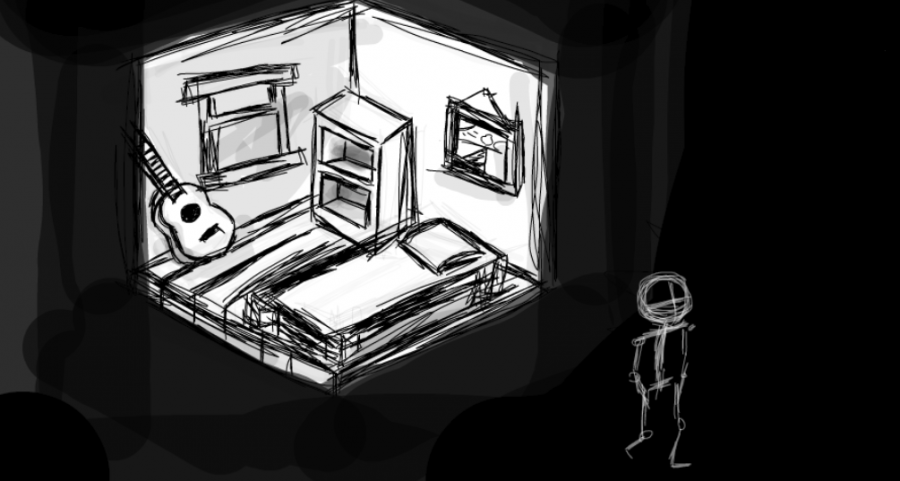Coronavirus: An Extrovert’s Perspective
Social isolation has deprived many people from interaction causing students to feel alone in such a troubling time.
April 17, 2020
With the recent global coronavirus pandemic instilling strict self-isolation guidelines across the country, many students are left feeling lonely and helpless during these troubling times. Schools in California have been mandated to shut down, which has severely limited student opportunities for social interaction. As anticipated, coronavirus has taken a significant toll on mental health.
As an extrovert, being alone has made me feel deflated and apathetic. This situation has left me with little reason to wake up each morning. I just lay in my bed all day, overcome with dangerous thoughts. I’ve always used school as a welcome distraction to my internal problems, and being deprived of it is an uninvited reality check. Being forced to comprehend and confront my anxious thoughts has been an exhausting and dreadful task.
The candid uncertainty of the entire situation has made me realize that nothing is a guarantee. Nothing is a promise. Nothing is reliable. My harsh new reality has overwhelmed me with a variety of emotions. From frustration to helplessness, I have become fearful of the future. Each day I check our local news, anticipating additional death. This hopeless mindset causes people to feel unmotivated and impotent.
The new, improvised approach to learning – distance learning, doesn’t appear to satisfy most students’ social needs. It’s superficial and shallow for learning, causing extroverted students to feel lonely despite the daily communication.
This feeling of being trapped has consumed me. Social distancing has made me realize that I’ve always taken my freedom for granted. I took advantage of my ability to meet up with a friend Baskin Robbins. Having that assumed privilege taken away within the span of a few days feels surreal. Being confined to a small space for prolonged periods of time is the epitome of the word trapped.
It is scientifically proven that isolation can significantly impact someone’s health. Psychobiologists have proven that loneliness is a common cause of mental illness and can influence the likelihood of heart disease, obesity and cancer. It can also impact the strength of our immune systems, a necessity during this pandemic.
Routine keeps the world sane. The “ideal” happy life portrayed by the media requires a level of spontaneity. Yet, studies have shown that the most successful people have adhered to a long-term strict routine. Routines provide people with reassurance and a sense of safety. They make us feel as though we have a purpose. They give us a set goal and an efficient way to achieve it. Routines offer us the certainty that we are lacking in these tough times. However, the absence of waking up at a set time each morning, going to school, and arriving home to do homework has been botched, leaving people without an end goal to strive for.
In the isolated reality we are living in, extroverts are left feeling lonely and vulnerable. The doubtful future can change at any moment, causing feelings of frustration and helplessness for those who rely on the constants in life. Unfortunately, we can only do one thing: hope.






